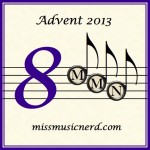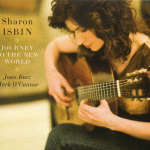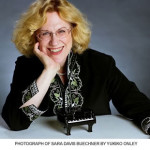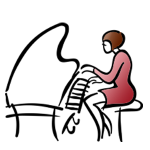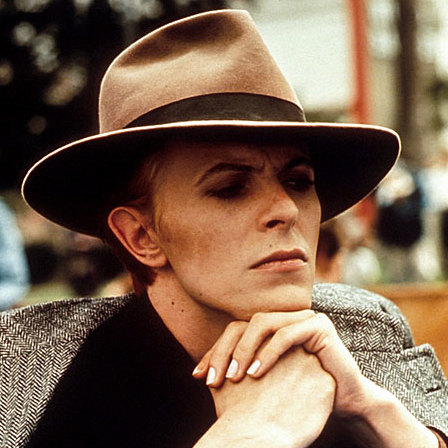
In memoriam David Robert Jones, 1947-2016.
One: My Suffragette City
There’s a starman waiting in the sky
He’s told us not to blow it
‘Cause he knows it’s all worthwhile
When I was a freshman at a preppy Catholic high school, one of my favorite classes was the mandatory religion class taught by Sister Louise. I was a nice Lutheran girl from a working-class home, and felt a bit out of my depth going to school with children from wealthy families. Sr. Louise was a island of honesty in a sea of pretense. A hippie in a habit, she wore Birkenstocks instead of the standard orthopedic nun shoes, and her permed blonde hair peeked out from under her veil. She blew my young mind open when she explained that hell is not a physical place with a lake of fire where you roast on a spit while impish demons laugh maniacally. “Hell,” she said, “Is the condition of being separated from God. It’s up to us to choose how close or far away to be.” I thought this view was much more likely to inspire healthy behavior than the fear of eternal torment ever could.
But woe to the student who mistook Sr. Louise’s hippie persona and philosophical bent for softness. When she overheard a jock with a chip on his shoulder talking during class, she interrupted her lecture and said, “Scott, did you just say ‘fuck’ in my class? Scott, please don’t say ‘fuck’ in my class.” Scott was duly chastened. In that moment, everything seemed possible.
Sr. Louise’s religion class was also the backdrop for my introduction to David Bowie’s music. I sat next to a Bowie devotée, a girl who was cool in a way I had never seen before nor dared dream of. Not cool in the sense of popular, but cool in the sense of proudly, confidently eccentric. She was just the right mix of intelligent and insouciant, with perfectly disheveled hair and skin that glowed without the help of makeup. She wore flowing clothing in muted tones that sweetly gave the finger to the garish hues and boxy styles of the mid-80s, but every once in a while she’d throw on an army jacket, just to keep you on your toes. And there I was, in my knee-length denim skirt and penny loafers, in a desperate, transparently vain attempt to look preppy, while deep down I knew no article of clothing could camouflage my lack of sophistication.
My über-cool classmate often had her trusty walkman in her jacket pocket and a stash of Bowie tapes in her backpack. One day she offered me her headphones and introduced me to “Suffragette City.” The chord change from A major to F major as the verse began took me not just to another city, but to another planet. The batteries in her walkman were starting to run down, making the music wobble and melt and sound even more psychedelic than it already was — something Bowie would have approved of, I suspect.
Sr. Louise gave me a new view of heaven and hell; my cool classmate gave me Ziggy Stardust and a new sonic universe.
Two: Rebel Rebel
We could be heroes
Just for one day
By the time I was a senior, I was still a nice Lutheran girl, as well as an honors student — but one who wore a lot of black, had an asymmetrical haircut, listened to New Wave, and wrote bad poetry. My quiet, studious demeanor allowed me to fly under the radar, so I got away with stealing liquor from my parents’ pantry and getting drunk with my fellow misfits most weekends. I eased the tension of my polarized identity by practicing Chopin nocturnes at home and participating in choir and music theatre at school.
For a time, I was tragically in love with one of my fellow choir and theater nerds (some of whom were in the closet, but not all). My love grew like mold in the dark as we rehearsed his vocal selection for a regional theatre audition: “Her Face” from Carnival. Each time we ran the song, I hoped and prayed it was me he envisioned as he sang, “Everywhere I look, I can see her face.” Alas, only the closing line of the lyric turned out to be true: “That would take two other hands, not mine.” But our musical collaboration continued, and because I was a teenaged girl, rejection only intensified my feelings.
As the date of our school’s spring choir concert approached, we worked up a rendition of Bowie’s “Changes” so we could audition for one of the coveted solo slots on the program. I was so proud of myself for learning the song by ear and arranging it for piano — that opening chord progression wasn’t anything my music theory lessons had covered. And he was so dreamy as he sang it, in a costume of faded jeans and a ratty t-shirt, an oversized trench coat draped over his lanky frame.
Choir concert solos were typically awarded to budding Broadway belters who chose inspiring numbers like “The Greatest Love of All” or “Wind Beneath My Wings.” Classical piano solos were also accepted, so I had made the cut before, and was confident our edgier act would succeed, too.
Our director turned us down flat. As I bemoaned the injustice, my dreamboat channeled his rage into action. We could sing the song anyway, he said. We could just go up on stage, before the choir filed in for the last song, and do it. Was I in?
Such overt rebellion was completely out of character for me, but I would have helped him rob a convenience store if he had asked. I was lucky a little rogue Bowie was the only crime he ever put me up to. We hijacked the stage, decades ahead of Kanye West. And because the only thing more disruptive than a guerrilla performance would have been the spectacle of putting a stop to it, our director stifled what must have been a very strong impulse to yank us offstage. The audience response was muted, perhaps reflecting confusion at our unscheduled addition to the program. But I couldn’t have been more exhilarated if we’d had an arena throng on their feet, waving lighters and chanting our names.
Retribution awaited us at school the next day, of course. Our director rained down wrath for 45 minutes, in front of the full assembly of our choir and theatre comrades.
It was worth it.
Three: One Damn Song
I watch the ripples change their size
But never leave the stream
Of warm impermanence
The summer after graduation, I finally acquired a boyfriend. Sadly, the relationship was a pale simulacrum, a junk food substitute for the love affair of my dreams. I longed for profound late-night conversations about shared angst and weltschmerz, and an undeniable, inevitable, forbidden connection with the Romeo to my Juliet, the Tristan to my Isolde — minus the violent, untimely deaths, of course. What I got was a flimsy excuse to get drunk and make out, often on double dates with my best friend and my boyfriend’s buddy, who were acting out the same hollow charade.
A bright spot in this pathetic farce of a summer romance was when the four of us attended a Bowie concert. It was during his Glass Spider Tour, and I was among the majority of the public who found the production disappointing. We came for the plastic soul, and only grudgingly tolerated the bizarrely elaborate set, superfluous dancers, and spoken-word segments that made the absence of earlier hits even more glaring. Little did we know it would one day be reevaluated as visionary and influential. I wanted one thing, and one thing only: to sway to the anthemic refrain of “Young Americans” while clutching my boyfriend’s hand as hard as I could, futile though the gesture would have been.
I was grateful to be there, in spite of my lukewarm attitude toward the avant-garde spectacle. I knew I was witnessing history, as surely as if I had traveled back in time to see Franz Liszt perform his piano pyrotechnics, overly showy though they were. As the performance wore on, though, my attention waned, owing to being drunk, having nowhere to sit, and eventually, having to pee. My best friend and I set off on a urinary mission, leaving our boyfriends in the crowd.
The venue was outdoors, and if it was outfitted with indoor plumbing or provisioned with portable toilets, we didn’t know about it. We wandered amid roiling crowds and thick clouds of multiple varieties of smoke until, believing ourselves in extremis, we finally settled on an unpopulated but really not sufficiently secluded spot by a fence. We took turns shielding each other as best we could.
It was then, of course, with the show almost over, that I finally heard the flashy piano glissando and raucous saxophone squawk I had been waiting for all evening. I broke into a sprint, instantly and jarringly sober, and made a beeline for where I thought my boyfriend was. I couldn’t find him. The crowd had drifted, and all I could do was drift along with it while the song went on inexorably and my dream slipped through my lonely fingers.
It was for the best. A week later, I left for college, and the next time I saw that boyfriend was as a guest at his wedding.
Epilogue: Eagles in My Daydreams, Diamonds in My Eyes
You know I’ll be free
Just like that bluebird
Now, ain’t that just like me?
When I heard David Bowie had died, I reflected, along with everyone else, on his evolution from alien to icon. And then those moments when his music imprinted on me so deeply came flooding back with surprising intensity, given the light years they had to travel. My own evolution, while not nearly as colorful or monumental, has been respectably expansive. As a music major, I learned to appreciate the avant-garde, so much so that I became a composer, and charted my own sonic universes. And at long last, I outgrew the notion that suffering is romantic, and the need to chase tragic love; in the most unexpected turn of all, I finally found the genuine kind that burns long instead of just bright.
I’m still transported every time the band stops and that voice belts out the essential existential question of our time: “Ain’t there one damn song that can make me break down and cry?”
I can’t think of a better way to sum up this irrational, inconvenient, yet absolutely indispensable pursuit we call music.
Say hello to the stars for me, Ziggy.

